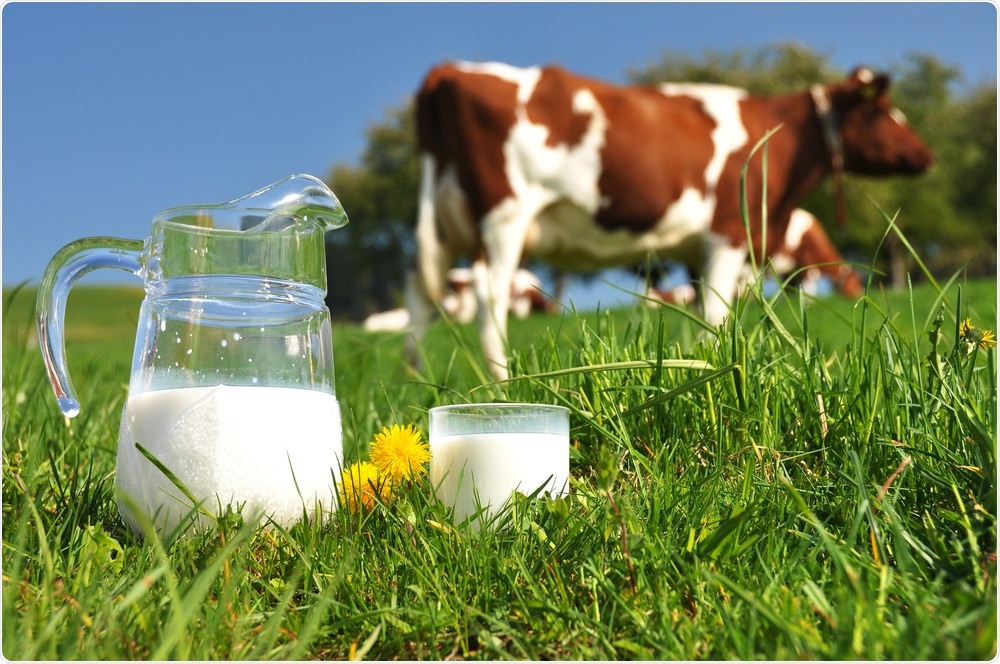A review of studies looking into the health effects of consuming estrogen-containing cows’ milk has found that the milk is likely to be safe for human consumption.
 Image Credit: Alexander Chaikin / Shutterstock
Image Credit: Alexander Chaikin / Shutterstock
The review suggests that the level of estrogens that occur naturally in cows’ milk are too low to pose a risk to adults and that people do not need to be concerned.
The paper, entitled “Estrogens in consumer milk - is there a risk to human reproductive health?", was published today in the European Journal of Endocrinology.
The female sex hormone estrogen is present in cows’ milk and with more than 160 million tons of the milk produced in the EU in 2016 alone, it is a common component of our diet.
Intensive farming has been shown to increase the amount of estrogen in cows’ milk which has raised concerns about the safety of drinking it.
Potential adverse health effects include an increased risk of hormone-related cancers, reduced fertility, and abnormal fetal development.
The current study reviewed the evidence available from more than a dozen analyses of rodents and humans looking at the effects that drinking the milk may have on the risk of cancer development and on fertility.
Professor Gregor Majdic and Professor Tomaz Snoj from the University of Ljubljana in Slovenia found that the majority of studies where rats ingested milk or milk-derived estrogens, showed no differences in cancer risk or reproductive health.
Some studies did report changes in reproductive health and other adverse health effects, but in those studies, the level of estrogen assessed far exceeded the level that people would usually ingest.
Some studies have also suggested that drinking the milk can affect the level of growth hormone in children, but it is not clear whether the link is related to consuming estrogens or whether there are any other adverse health effects.
The majority of studies we reviewed concluded that the concentrations of estrogens found naturally in milk are too low to pose a risk to reproductive health or cancer development in adults. However, studies are lacking that look at any harmful effects of hormones from cows' milk on baby and child development and health.”
Professor Gregor Majdic, Co-author